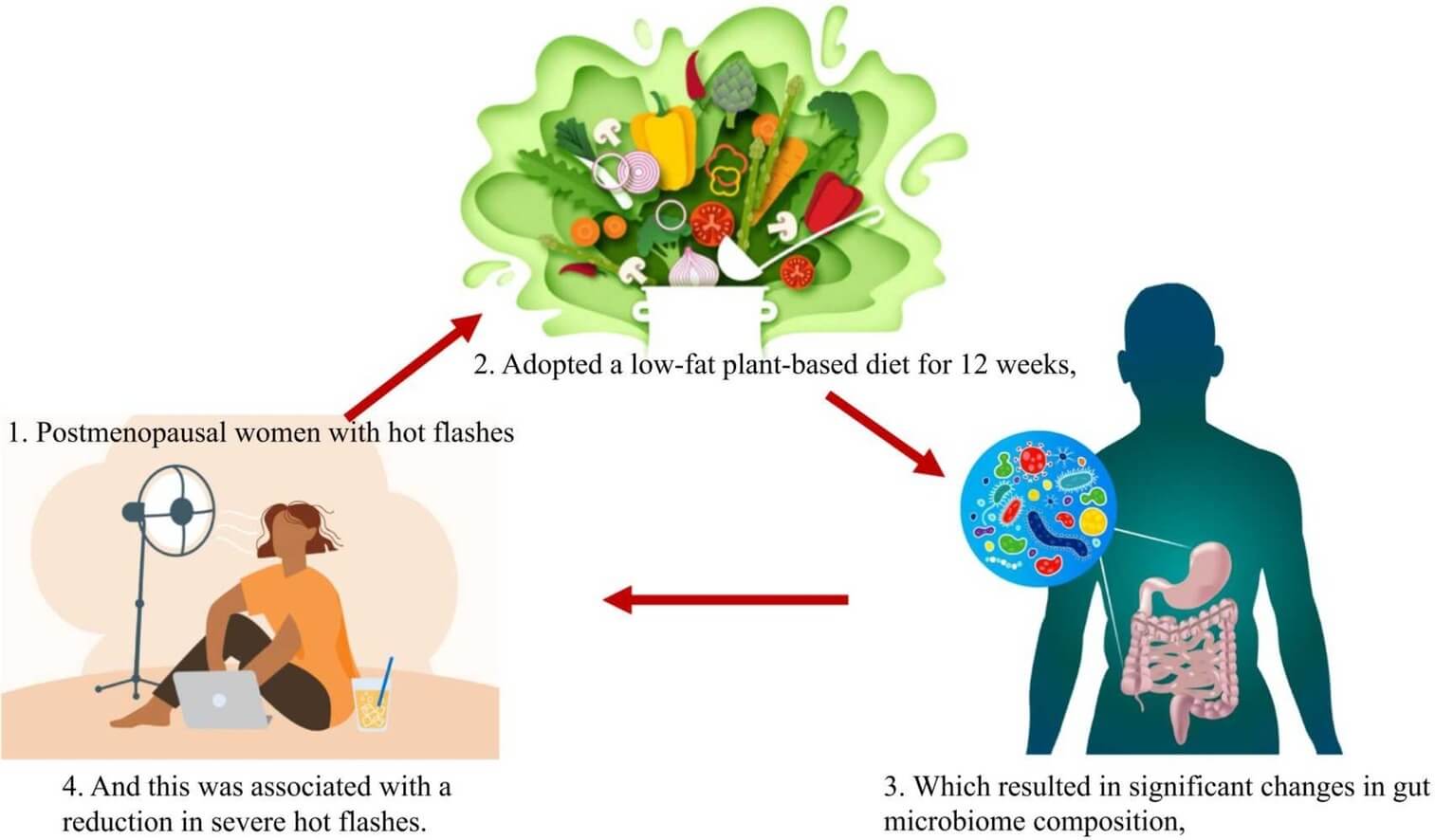WASHINGTON — A vegan diet can significantly diminish hot flashes in postmenopausal women, with the potential to nearly eradicate them altogether, new research shows. The study finds an impressive 95 percent reduction in hot flashes of varying intensities, with a reduction of 96 percent observed in moderate to severe instances. Remarkably, severe hot flashes were completely eliminated.
The study participants who adopted a vegan diet lost an average of 6.4 pounds over the course of the 12-week study. The findings, produced by the Physicians Committee for Responsible Medicine in Washington, D.C., suggest that the shift in the gut microbiome associated with a low-fat vegan diet is responsible for these results.
This dietary adjustment not only helps in managing hot flashes but also reduces the risk of serious health conditions like heart disease and Type 2 diabetes, as it leads to a decrease in the gut bacteria that contribute to these diseases.
“Women who want to fight hot flashes should feed the bacteria in their gut a vegan diet rich in fruits, vegetables, grains, and beans, which also leads to weight loss and protects against heart disease and Type 2 diabetes,” says Dr. Hana Kahleova, a co-author of the study, in a media release.

The research is a secondary analysis of data from the WAVS trial. In the primary study, 84 postmenopausal women experiencing at least two moderate-to-severe hot flashes daily were either assigned to a vegan diet or continued with their regular eating patterns for 12 weeks.
For the secondary analysis, researchers examined stool samples from 11 participants to assess changes in the gut microbiome. This study is pioneering in establishing a link between the reduction of specific gut microbes, such as Porphyromonas and Prevotella corporis, and the alleviation of severe daytime hot flashes. Prevotella corporis, also found in individuals with rheumatoid arthritis, appears to possess pro-inflammatory qualities.
The study further suggests that the changes in other bacterial populations observed could help alleviate hot flashes by stabilizing estrogen levels, reducing inflammation, and increasing satiety, among other health benefits.
The findings are published in the journal Complimentary Therapies in Medicine.
You might also be interested in:
- Best Vegan Cookbooks For 2023: Top 5 Guides Most Recommended By Experts
- Best Of The Best Vegan Chocolate Brands: Top 5 Dairy-Free Sweets Most Recommended By Experts
- Hormone replacement therapy during menopause linked to higher dementia risk among women
South West News Service writer Isobel Williams contributed to this report.

